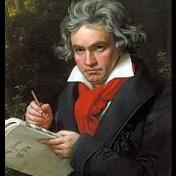Leaderboard
Popular Content
Showing content with the highest reputation on 08/24/2020 in all areas
-
They announced they started development on it a couple months ago and described the features they're implementing with some screenshots, but since its early in development there is no release window yet. If I had to guess, I'd say it's probably a year off. Still though, I remember like 10 years ago having this discussion with people about how there was no good solution for people who prefer composing with notation but still want to use virtual instruments. It appears we finally are going to have one. I guess one could argue that Staffpad which is a new software technically does that, but it's limited to tablet computers and isn't as all encompassing (or as affordable lol) or flexible as the future MuseScore release will be. Basically, that is going to be a no-brainer for anyone who wants to get into composition, especially orchestral. You could either pay $10 a month until you own it or 150 outright for Noteperformer (which just keeps getting better all the time), pair that with the free dragonfly reverb, and essentially have a great composition setup for $150 dollar not including your computer and noteperformer and musescore could run on any laptop from like...the last 10 years. But it will also mean that composing with VSTis will be a lot easier. You can just compose right in the notation and then tweak specifics of the performance without ever having to leave MuseScore.2 points
-
Hello! Here is a new piano sonata allegro movement that I've written during the pandemic. I'd welcome any feedback you might have. 🙂 Dan1 point
-
This piece was something I put together a while ago. It isn’t to complex and like usual, I’m always welcoming to advice on how to make the harmony a bit more complicated.1 point
-
Wow! I'm glad that this topic has inspired such a response. As my name suggests I like to spend my time writing music on paper (a notebook with a cardboard back) so that I can relax in my bed and make most of my musical decisions in that state without hurrying anything. I usually take short little breaks after I write each new musical idea - during that time I like to read material assigned at school (an online class and the semester just started). I read a paragraph and it's back to writing music. EDIT: I also do this because it seems to relieve any creative stress I might feel about forcing myself to continue composing. @pateceramics I usually like to sight-sing or whistle my melodies as well and I use theory to imagine how all the parts will sound together sometimes singing vertical sonorities if I need to - but I've also learned plenty about how to let dissonant harmonies be especially if they're just passing harmonies. If I'm outside the house I also have a musical notepad which I've made for myself by drawing lines into the college-ruled paper. I usually just need a tuning fork or if I don't have it with me I use the volume button on my cell phone to figure out what key I'm in. I don't usually think of it as a reward but I like to sometimes go get a popsicle home-made in a nutri-bullet as a smoothie and then frozen (they're healthy so I don't feel guilty eating as many as I want). My composition teacher at University was a smoker so he'd always reward himself with smoke-breaks and that's where I got the idea for this question LoL. I usually only get stuck if I've written a piece where it has led into a new section of music but I don't know what kind of themes should be there or what key they should be in and I can't do a recap of previous themes because they've already been repeated too much - feels kinda like I've backed myself into a corner and I have to come up with new material but it has to fit the style of the rest of the piece. Thanks for all the great advice guys! As for updates about Musescore 4 I found this website: https://musescore.org/en/MuseScore41 point
-
I mainly compose at the computer, but the original nub of the idea generally comes while I'm doing something else. When that happens I use the voice memo function on my phone and record myself humming or singing to save the idea for later. I'm a singer and I mainly write vocal music, so I am always at an instrument. LOL. I'm the instrument. Sometimes I have a good productive stretch, but often I find myself working in short bursts. I make sure I stay with the project, but I do click away from it for a mental break when I can't think of what comes next. I go to youtube and listen to something in a similar style for 30 seconds, click back to my composition and see if any new ideas have broken loose. The trick is not to get upset with yourself when you are stuck. You will get unstuck. Go put some new information into your brain and see what new neural connections result. I also find it helpful to take some time to polish my score when I'm stuck. It's going to need dynamics adjusted and notation checked at some point, so I might as well use my stuck time productively and get some of that done. Sometimes you have composer's block and you have no idea what you want to come next. Often that means the place where you stopped is too final sounding. It's a small complete idea all on its own, and nothing needs to come next, musically speaking. In that case the trick is to alter the place where you stopped so it sounds slightly less complete. Just changing a note or two can do it. Other times you have composer's block and the problem is that you know what you want, you just can't quite put your finger on it, like a word that's on the tip of your tongue. You keep trying various things that are not quite right. In those situations, I find it easiest to divide the problem into smaller ones. Think of one musical aspect at a time. Is the rhythm the thing? (Try some clapping, or foot tapping). Do you want some accents? Is it the melody? (Mute everything but the melody). Is it the harmony? (Try to sing the bass line, then the next line up, then the next line up). Is it that you like the general melodic shape, but you want it in a different key? Etc. The only time I find composing anything other than relaxing is when it's hard to concentrate: sounds of leaf-blowers, people drag-racing on our block, other people putting on music or a podcast without headphones. I need it quiet to hear myself think. If you aren't being musically productive, go be productive with something else to buy yourself time later when you are in a better headspace. Do those dishes, that load of laundry, respond to that work email. With that done, you'll have time to compose a little later.1 point
-
If the power is out, I compose away from hardware. If not, I mainly compose at the computer. The piano is part of my compositional process. I use it to improvise melodies and harmonies for my pieces. I honestly haven't thought of Productivity. Though my composition rate has increased. Both? The flurry of creative ideas being starting new pieces, often because of a block with another piece closer to being finished and the breaks being with those pieces that I get a composers block with. A lot of things. Games, playing the piano, helping my mom around the house, knitting, etc. I haven't thought of having a reward system to be honest. I just keep right on composing. The dreaded composers block. I do multiple things to try to get unstuck. First, I try to improvise a melody on the piano that goes well with what I have so far. Second, I try to improvise a harmonic progression and write a melody around that. Third, I try to see if the melody I have can be written in a Contrapuntal fashion(i.e. Canon, Fugato, Free Counterpoint etc. and if I'm writing a Theme and Variations type of piece, I go ahead and try to write a Fugue variation of the melody(so not just a Fugato for contrast, but an entire Fugue)) Fourth, if none of these work within a relatively short timeframe, I take a break from that piece and work on a different piece. I write down the structure I'm thinking of having the piece in and any changes in key. That's it. I save writing the melody and harmony until I get back to my computer. I'd say a 3, I'm usually pretty relaxed when I compose, but when I get composers block, the tension in me rises. I do a mixture of methods. It all depends on the type of piece. For something like a Waltz or a Chaconne, or an orchestral piece with a textural creschendo, I do Harmony First. For something like a Sonata or any contrapuntal piece, I do Melody first. And then there are pieces where I germinate the entire piece from motives, a lot like in Beethoven's Fifth, except not using that motive obviously(though sometimes my motives do get close to Beethoven's motives). And then there is the Nocturne, a type of piece that might very well have 1 section written harmony first and another written melody first.1 point
-
I mostly composer in front of my laptop. I have music paper handy at my office to write down themes and sketches when they come to mind. I also compose in spurts, in part due to the nature of my real-life job which can be very demanding on my time) and also because I can very easily start pieces but almost always hit a wall at which point I may set it aside for weeks, months.... even years (my "themes and fragments folder" has hundreds of files) but when the spirit moves me, I finish up a piece in a flurry of activity within a week or so. When I hit a block (which is often), I listen to music, with Beethoven and Bach being staples, and other composers with good examples of the genre I'm working on (e.g. when working on my Requiem, I got very familiar with Cherubini's setting in C minor). YouTube, with many great music performances/recordings with the sheet music rolling is a great resource. I also often try arranging older works for other forms (particularly as organ transcriptions) or take a theme and write some simple variations to try to get the creative process flowing.1 point
-
Wow, this sounds amazing. I just bought EastWest Hollywood Orchestra but have been having difficulty using it with CakeWalk after exporting MIDI from MuseScore. To eliminate that DAW middleman would be fantastic... Do you have any intel on when MuseScore 4 will be released?1 point
-
I encourage to work on this. It means a lot in the expressivity of a piece, even in a notation software.1 point
-
I compose in the following method Having a rough idea in my head writing it down in a sketch book refining it at my piano creating a detailed plan of the piece write the piece on paper check through it write it on notation software go over the entire piece to make sure it is coherent and that I like it. I can be extremely productive this way getting through four pages in one night, or I can be very unproductive like recently where I advent written a single bar for days. I personally also really struggle to work on more than one piece at a time. If I get stuck I usually sit at my piano and play or sing the piece feeling where it flows. if I can't think of something I leave it for a while. I'm awful at remembering musical ideas. It's truly my greatest curse. One time I had a brilliant idea for a string trio and then I went to write it down and I forgot. 😞 I'm relatively relaxed when I compose because of the way I view my structures. and of course I plan things such as form and modulation and how I will twist themes during extensive form pieces. so there really isn't a point at which I'd feel stressed. I'm very bad with articulation markings and I need to get better at adding them in to my pieces.1 point
-
I write music at the computer. However, many times the idea of what I want to do takes form previously in my head. I use the piano. Sometimes I always write music on paper. As I am amateur, and write music because I love it, this is not so very important, although music and composing takes big part of my spare time. I can be working on something for hours, if I have the time. My breaks are dedicated to my pets. No rewards, but the music itself. Listening to more music and reading scores. Here in this forum, too. I like to see what "real" people is working on... I keep it in mind until I can write it. 1, for me writing music is a pleasure.1 point
-
Usually at computer with instrument and ideally notation software. I don't like DAWs and VSTs generally for writing because it takes forever to get 8 bars done and you inevitably wind up spending a lot of time screwing around. BUT I have been working on a couple tunes recently in a DAW simply because that screwing around lead to good ideas... If it is with notation software and I'm not worried about samples... For example, I just finished writing a new, instrumental rock song that I am now ready to record. The writing of it took maybe 2 1/2 hours and it's one of the best electric guitar tunes I've composed in a long time, I'd say. The latter if possible. This is why I am a big advocate for having as efficient of a workflow as possible and knowing as much about theory and composition as you can: It eliminates a lot "writer's block" and reduces screen time dramatically. As much as I love writing music, life is too short to spend a lot of it staring at screens or paper. So the more the efficient your workflow is and more control you have over what you're doing, the faster you can go from first idea to finished product without losing any quality and get back to actually living life. Knowing exactly what it is that you have to do harmonically, melodically, articulation wise, etc. to achieve what you want makes the whole process a lot more fun, smooth and just better overall. I remember what it was like when I was like, 13 and trying to write a song but not knowing anything about what I was doing. I'd spend hours noodling on my guitar trying to come up with anything that I thought sounded good or like I wanted. God, that would be unbearable now thinking back on it. This also comes back to one of the "getting old" life lessons of realizing the value of time. What I am most excited about, even though I've used no previous versions of the software, is the announcement of MuseScore 4. I already know it's going to be my go-to thing from here on out. I've been waiting for notation software to be able to do this since forever. It's going to have support for VST plugins and NotePerformer 3, but the software itself with remain free. This means I can write for real instruments, NotePerformer (which I actually prefer over sample libraries but that's another thread), and VSTIs (as well as control the performance on the built in sequencer) all in one place and then just export the stems to mix in Reaper and record whatever live instruments alongside it. The amount of time that release is going to save me...1 point





.thumb.png.8b5b433a341551e913a34392660bc95b.png)

